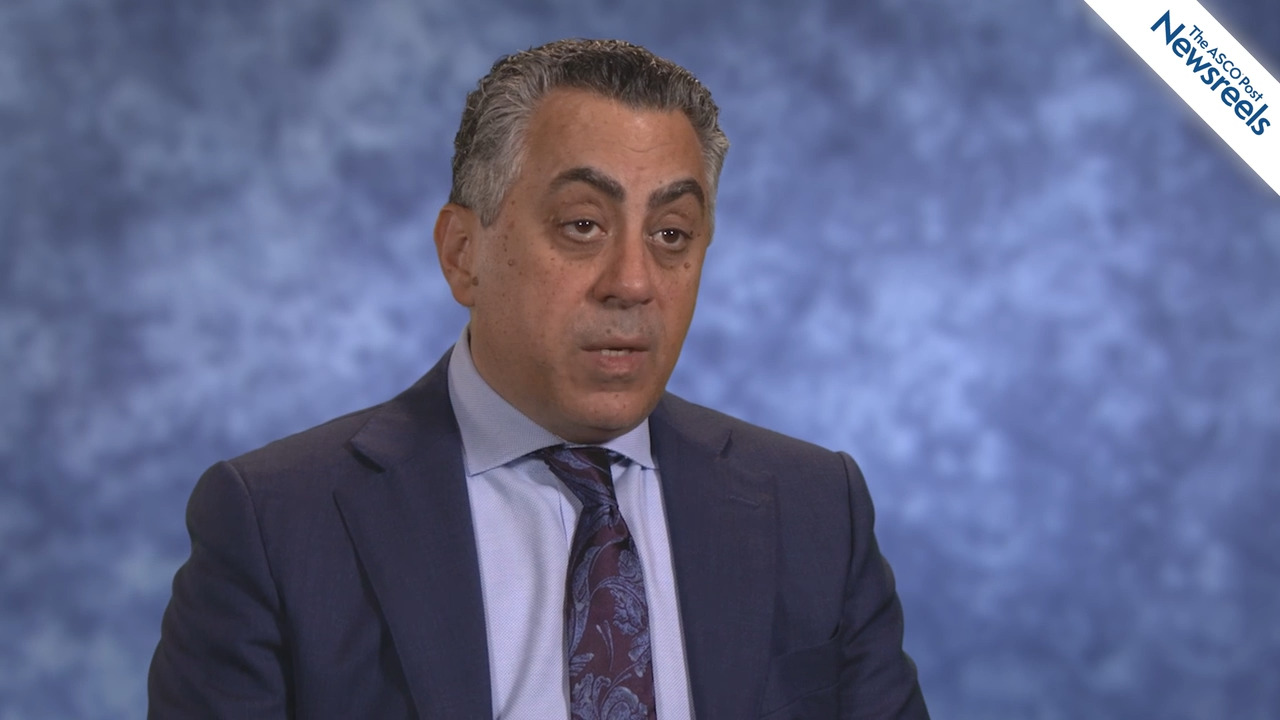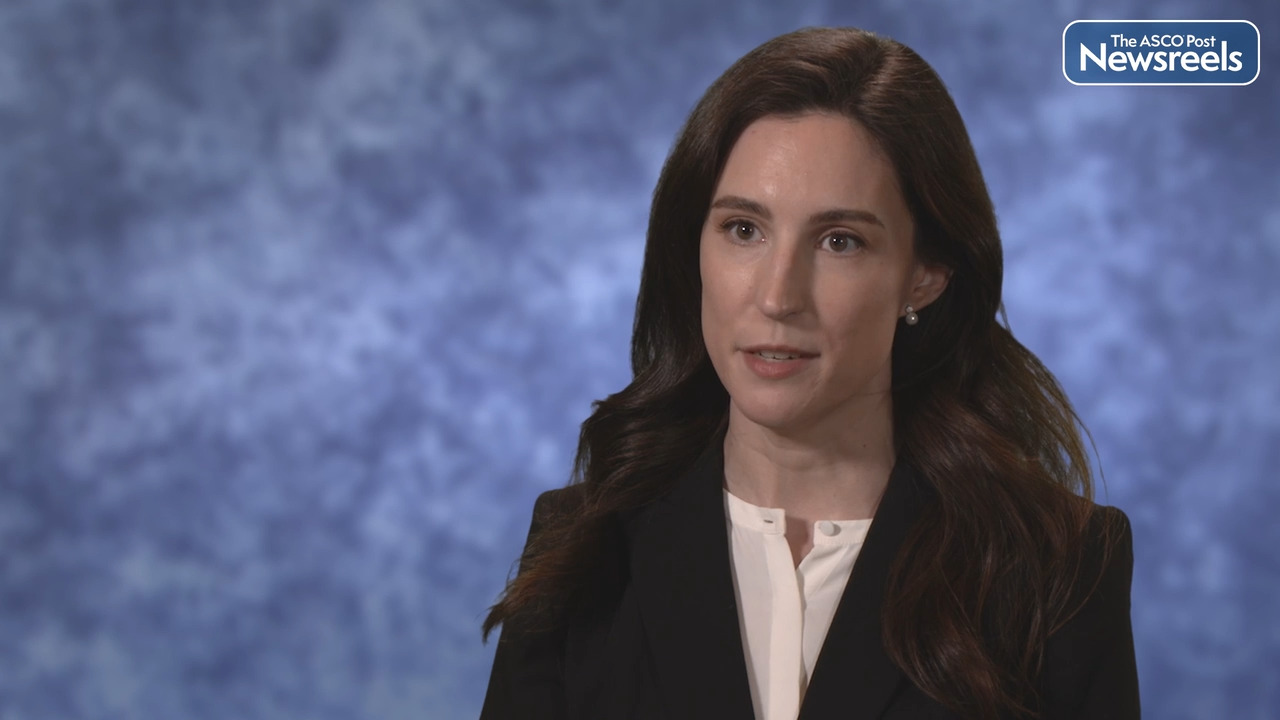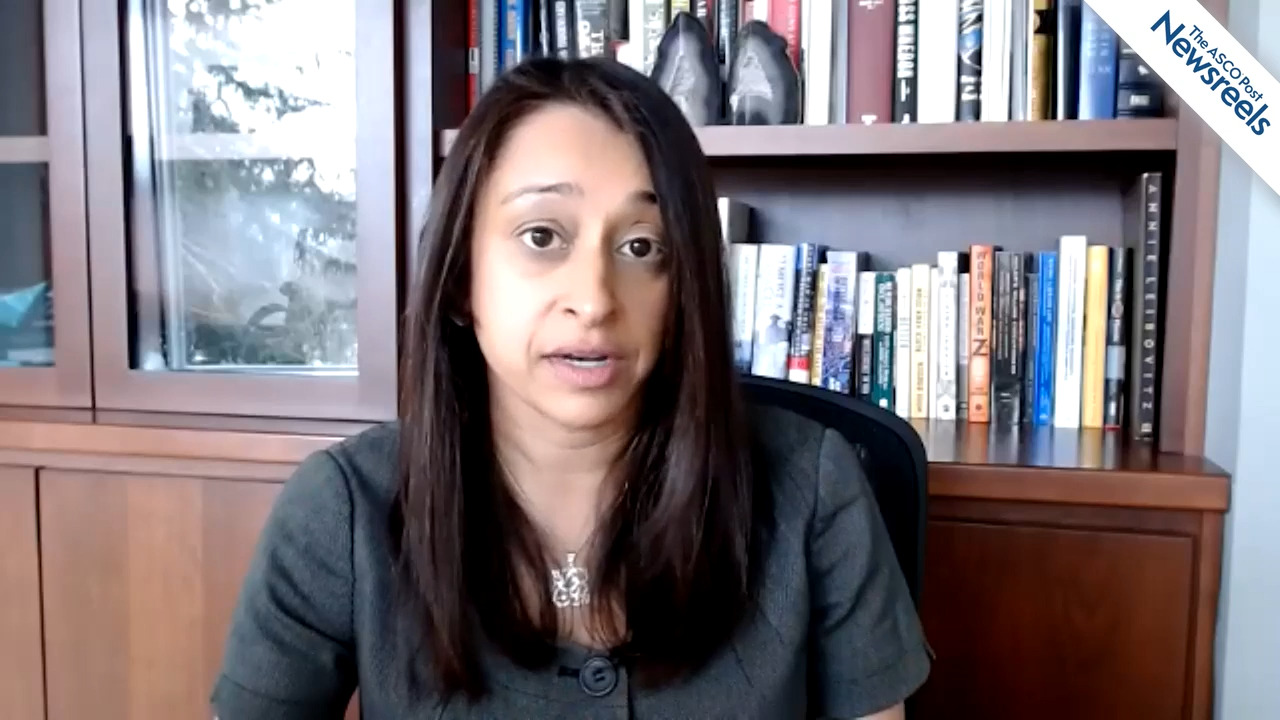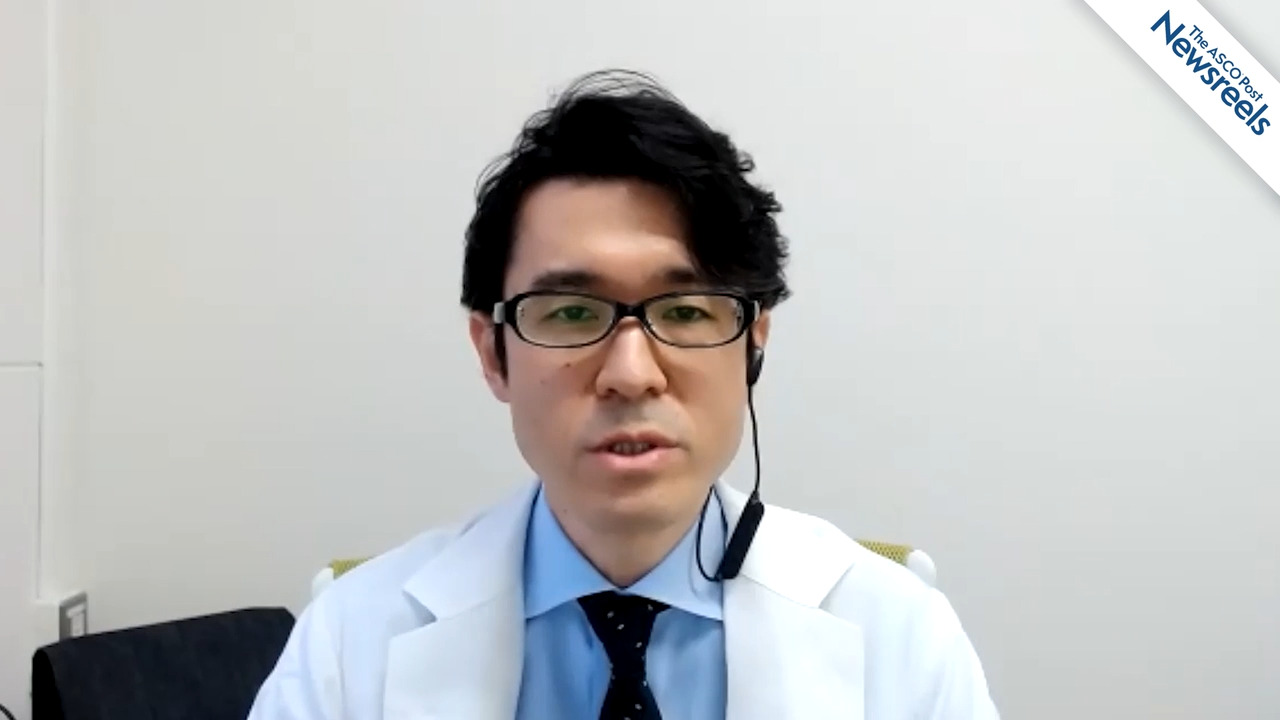Melissa Amy Lumish, MD, on Rectal Cancer: PD-1 Blockade for Mismatch Repair–Deficient Disease
2022 ASCO Gastrointestinal Cancers Symposium
Melissa Amy Lumish, MD, of Memorial Sloan Kettering Cancer Center, discusses new findings showing a 100% complete response rate to PD-1 blockade alone among the first 11 patients with locally advanced mismatch repair–deficient rectal cancer treated with this approach. None of the patients required chemoradiation or surgery, thus avoiding their attendant morbidities, and so PD-1 blockade may represent a new treatment paradigm. Follow-up on the durability of response is needed (Abstract 16).
The ASCO Post Staff
Tanios S. Bekaii-Saab, MD, of Mayo Clinic, discusses new findings from the KRYSTAL-1 study, which suggested adagrasib monotherapy is well tolerated and demonstrates clinical activity in pretreated patients with unresectable or metastatic pancreatic cancer or other gastrointestinal tumors harboring a KRAS G12C mutation. Adagrasib is an inhibitor of the KRAS G12C mutation (Abstract 519).
The ASCO Post Staff
Francesca Battaglin, MD, of USC Norris Comprehensive Cancer Center and the Keck School of Medicine, discusses findings from one of the largest studies to investigate recurrent neoantigens in upper gastrointestinal cancers. Dr. Battaglin and her team identified peptides with high human leukocyte antigen–binding affinity and an association with a positive tumor inflammation signature in both microsatellite-instable and microsite-stable tumors, suggesting a role for such antigens as potential cancer immunotherapy targets (Abstract 246).
The ASCO Post Staff
Kohei Shitara, MD, of Japan’s National Cancer Center Hospital East, discusses a long-term data follow-up from CheckMate 649, which support the continued use of nivolumab plus chemotherapy as first-line treatment in patients with advanced gastric, gastroesophageal junction, and esophageal adenocarcinomas (Abstract 240).
The ASCO Post Staff
Nilofer Saba Azad, MD, of Johns Hopkins Sidney Kimmel Cancer Center, assesses the findings from the phase III TOPAZ-1 trial, a study of durvalumab in combination with gemcitabine plus cisplatin in patients with advanced biliary tract cancer. Dr. Azad explains why the study sets a potential new standard of care of gemcitabine plus cisplatin and durvalumab in unselected patients.
The ASCO Post Staff
Yu Sunakawa, MD, PhD, of Japan’s St. Marianna University School of Medicine, discusses his findings from the DELIVER trial, which suggest the gut microbiome may predict skin toxicities in patients with advanced gastric cancer who are treated with nivolumab. In addition, some single nucleotide polymorphisms, such as NOTCH1, SEMA4D, NLRC5, and IL-6R genes, may potentially become markers for diarrhea and skin toxicities with this agent.





